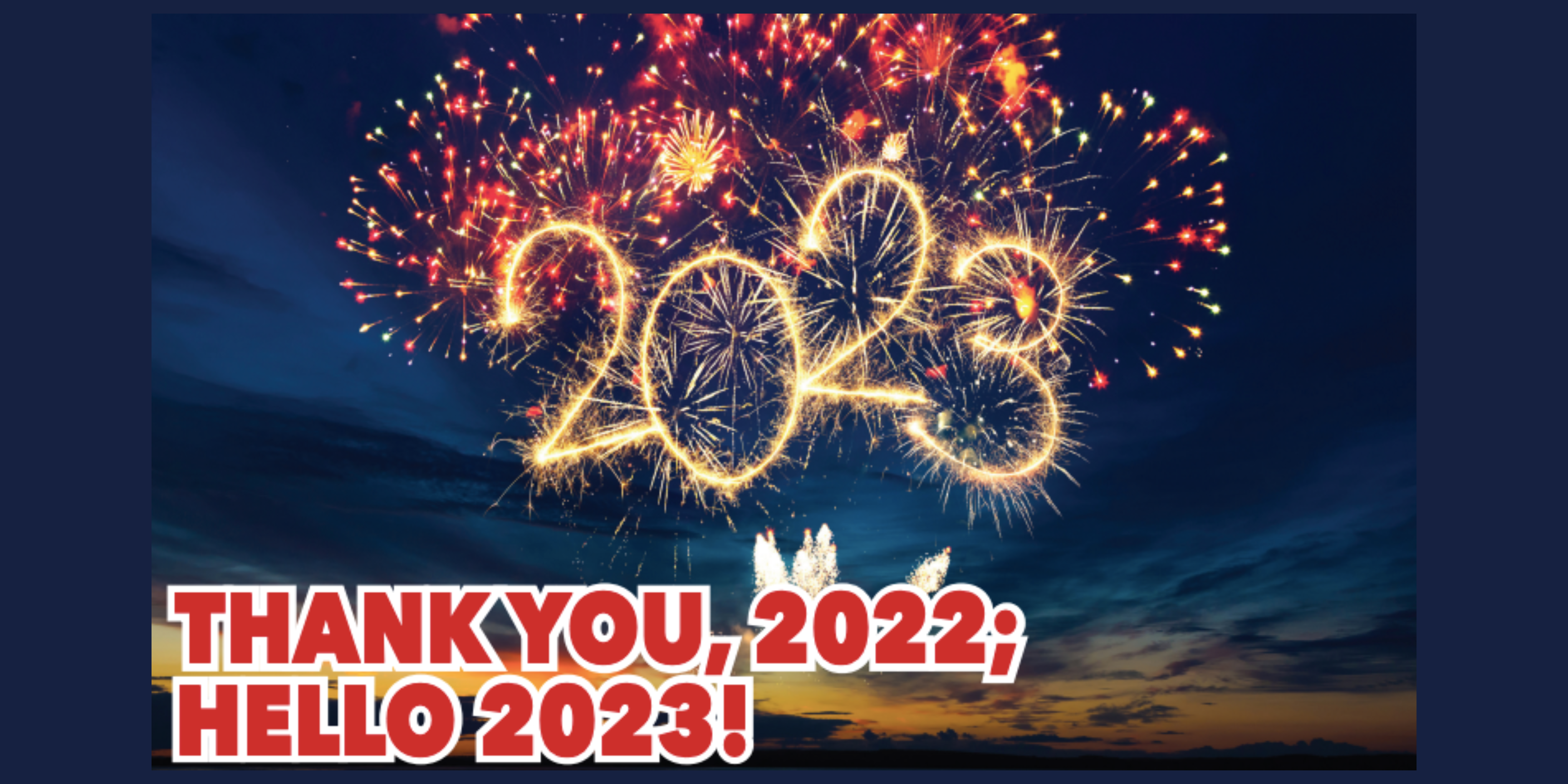The year 2022 has offered us all one of the most important gifts and resources of all—time. As important events unfolded around us in alternating rhythms, the passage of time enabled us to reflect on many facets of our life in society, look back on what we’ve achieved, and take control and make better choices for the future. Here are the top 10 events and developments that immensely impacted overseas Filipinos’ lives in the UAE:
Sheikh Mohamed bin Zayed’s ascension as UAE President
The ascension of Sheikh Mohammed bin Zayed, 61, transpired after the death of his brother and the UAE’s then-president, Sheikh Khalifa bin Zayed Al Nahyan, at the age of 73. This marks the third time that the seven sheikhdoms has selected a president since the union in 1971.
The gathering of the Rulers gave a similar scene to the famous riveting old photographs of how the Union was founded 50 years ago, to announce their unanimous selection of His Highness Sheikh Mohamed bin Zayed Al Nahyan as the UAE’s new President.
This marked the third era in the UAE’s history— the first phase was of Arab Renaissance and development under the Founding Father, Sheikh Zayed bin Sultan Al Nahyan; the second phase was the extraordinary achievements under Sheikh Khalifa; and the third phase came with the new leadership of His Highness Sheikh Mohamed bin Zayed.
News about His Highness Sheikh Mohamed bin Zayed’s selection was welcomed with roaring support inside and outside the country. During its 10th session of the ordinary third term of its 17th legislative chapter, the Federal National Council had pledged allegiance to the new President. Elsewhere, there was an outpour of congratulatory greetings from and visits of global leaders, describing the President as a leader of high calibre, a global humanitarian champion, and a global peacemaker, who made a difference in achieving remarkable milestones in terms of promoting safety and security regionally and globally.
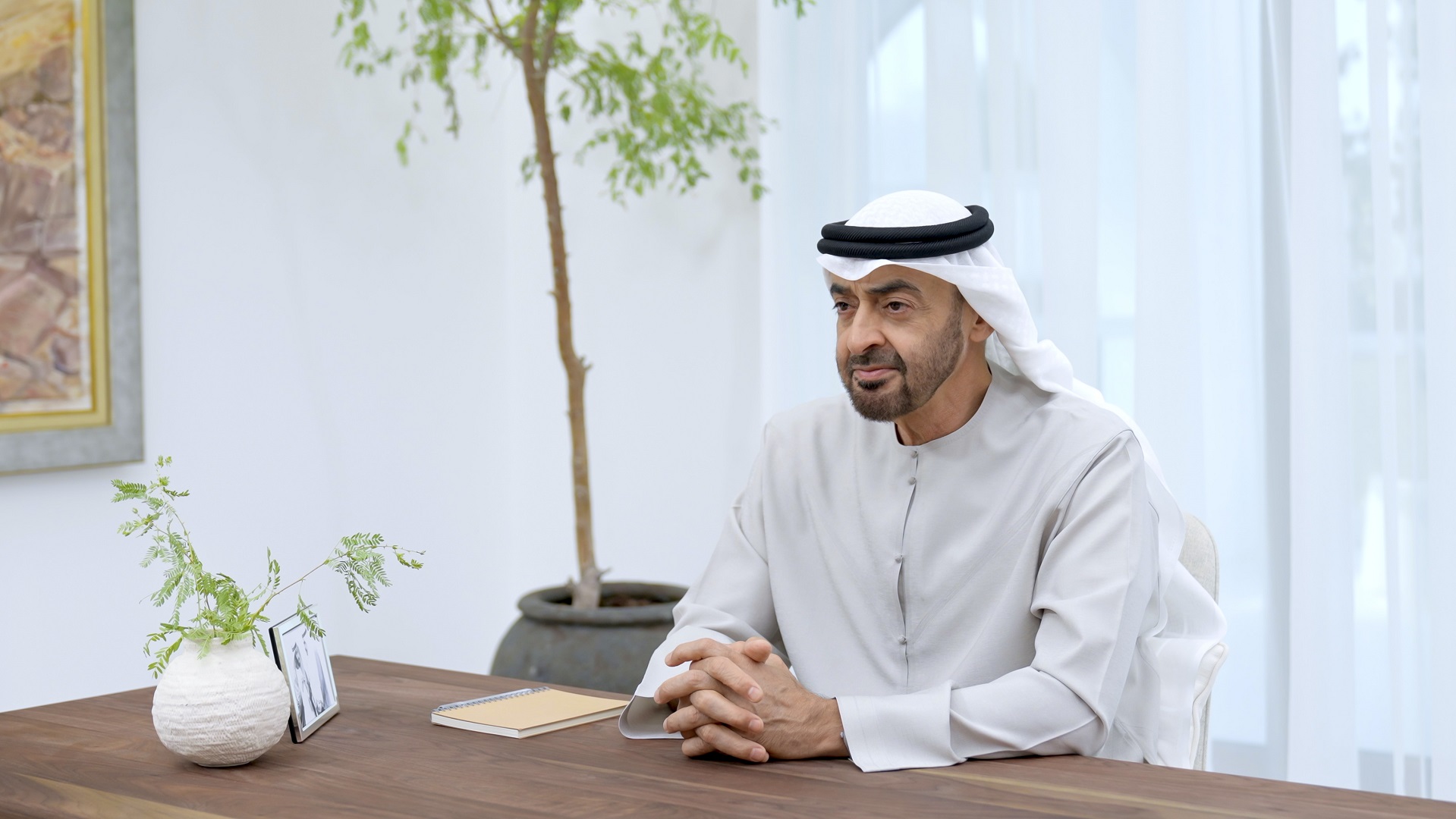
( Manuel Ramrez for the Presidential Court )
—
New workweek came into force
At the start of 2022, the UAE government had given citizens and residents the gift of time, when it adopted a four-and-a-half-day workweek for public employees and shifted its weekend from Friday afternoon-Sunday, in line with the international norm.
Previously, the UAE followed the traditional Gulf weekend of Friday- Saturday. It was initially only made mandatory for public sector employees, but the private sector had immediately also adopted it. In fact, the emirate of Sharjah has given people a permanent three-day weekend, which so far existed only in the dreams of working people across the world.
The “game-changer” work measures, which came at a time when work became accentuated by the stretched hours on the job during the work-from-home (WFH) trend of the pandemic, were aimed at enhancing the happiness and quality of life of its people, who have always been at the heart of its governance decisions.
Under this new work model, employees are entitled to overtime payments if they have to work more than 48 hours in a week. With the new timetable, Monday- Thursday work hours are 7.30 am- 3.30 pm (8 hours), Friday work hours are 7.30 am-12 noon (4.5 hours), and Friday prayers are to be held at 1.15 pm. And then, the long weekend begins.
Curtains came down on Expo 2020 Dubai
A new chapter in UAE’s modern history closed when the curtains came down on Expo 2020 Dubai on March 31, 2022, but its legacy lives on.
Experienced by millions of people, the Expo showed the UAE’s national resilience, as the event itself— deferred and fortified because of the pandemic — successfully showcased the blend of culture and technology, heritage, and futurism. Expo 2020 Dubai unveiled to the world will power its international relations — and, consequently, competitiveness and growth — through generations.
The Expo Dubai has also seen the largest participation of the Philippines in a World Expo. With New Perspective Media, leading the media and communications campaign of the ‘Bangkota’, the inaugural ceremony of the Philippine pavilion saw a tremendous success. The momentous unveiling event attracted local and international correspondents from leading radio, TV, online and print media.
Highlighting the unique delicacies, products, culture, and rich history of the Philippines, the Bangkota was one of the first pavilions to reach its first one million visitors and is also one of the most visited structures at the Expo.
Visitors also flocked to the in-demand ‘Mangrove Café’ that offers a taste of the Philippines’ best dishes as well as the ‘Go Lokal! x Marahuyo’ store where visitors can take home a piece of the Philippines.
The spectacular success of Expo 2020 Dubai has led to the next phase of the UAE’s connection with the world — which already came to life in October 2022, in the form of Expo City Dubai. Reinvented as Dubai’s newest free zone, Expo City Dubai will be home to some of the top local and global companies, a new museum, a world-class exhibition centre, and the headquarters of cutting-edge and fast-growing companies.
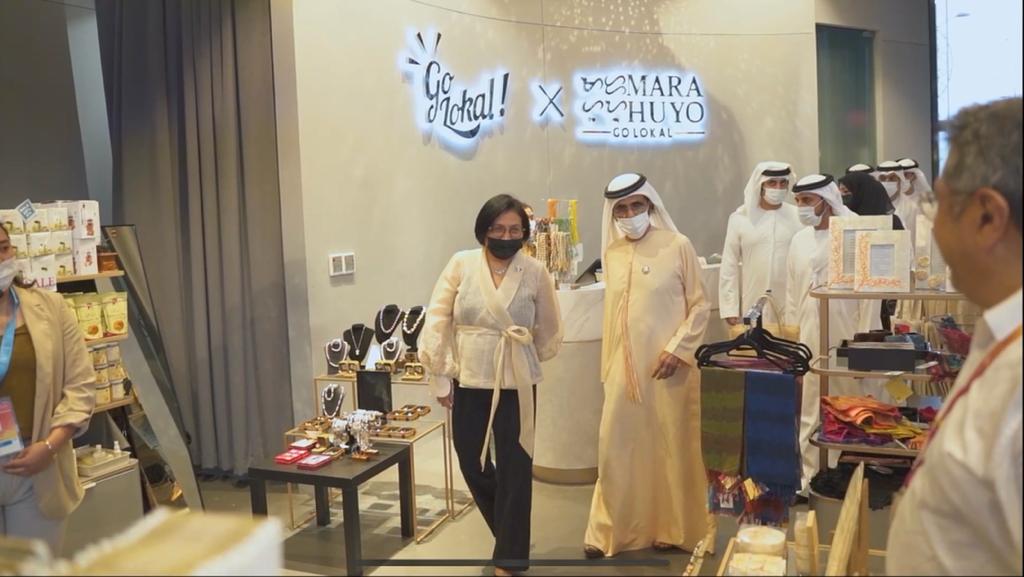
Dawn of post-pandemic normalcy
The UAE government ended all COVID-19 restrictions in November 2022. Wearing masks, which was initially optional for outdoor activities in March 2022, has been further eased. Most activities have now returned to pre-pandemic levels of normalcy.
The latest announcement from the UAE health authorities made face masks optional in all open and closed facilities, including places of worship and mosques. Praying on personal mats also became optional at mosques and praying facilities. Meanwhile, the requirement of having to show Al Hosn Green Pass to enter attractions, hotels and indoor public venues was also removed. The only time Al Hosn will be required will be for travel if your final destination requires proof of vaccination.
The UAE’s success in the battle against the pandemic was due, for the most part, to its strong healthcare system and its commitment to pandemic preparedness and response. It consistently ranked number one in the world for individuals who have been vaccinated against COVID-19. And it has seen a downward trend in new COVID-19 cases.
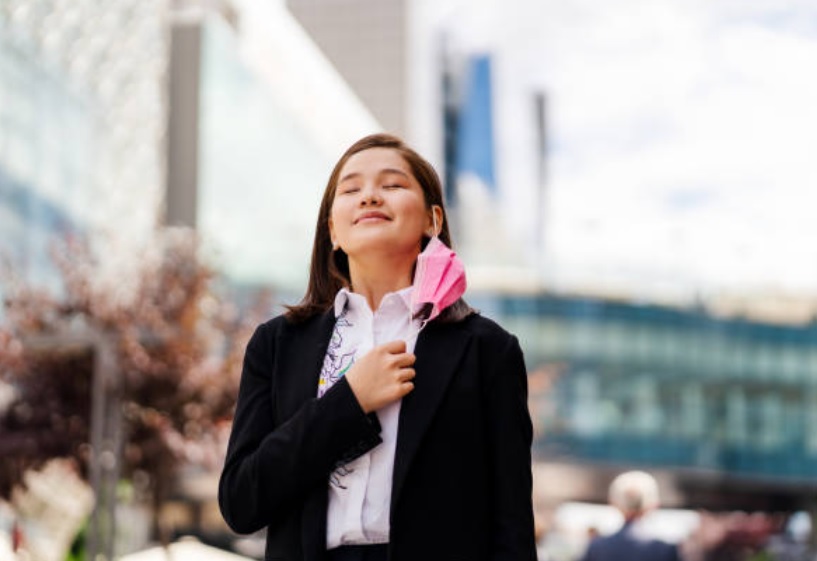
Groundbreaking visa scheme and work models
The occasion of Ramadan came as a wonderful gift for all UAE residents with the introduction of 10 types of new entry and residence visas. It was announced on April 18, 2022 and came into force last October 3.
This, along with the expanded 10-year residency scheme called Golden Visa, aims to attract, and retain entrepreneurs and top talents, especially those in the tourism, economic, and educational sectors. The new visas, which introduced the Green Residence Visa, freelancers visa, job exploration visa, temporary work mission visa, student visa and more, require no host or sponsor; offer multi-entry validity, and have one unified application platform. Visitors can now stay in the country for 60 days as standard, as compared to the previous 30-day visit visa on arrival for most nationalities. The Golden Residence Visa scheme has been made more extensive because they can now sponsor family members and domestic workers without any limit on their number.
Several Filipino professionals have shared with The Filipino Times their gratefulness to the UAE government for handing them golden visas which also benefits their families.
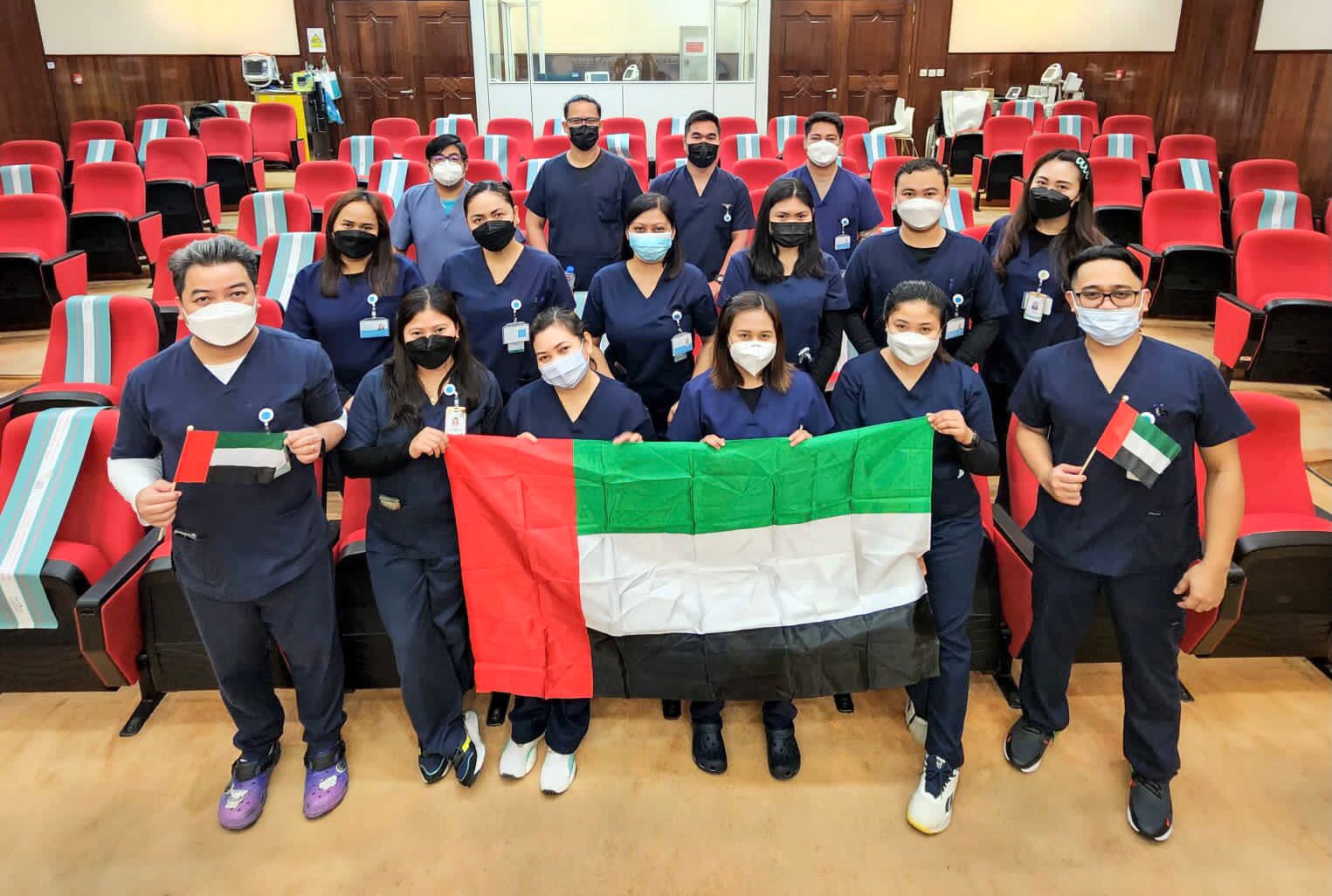
The visa reforms came following the announcement of 6 work models and 12 work permits on February 1, 2022. The new rules allow employees to have more control over their work schedules. This includes the option to have remote work, shared jobs, part-time, temporary and flexible job contracts when applying in the private sector. Meanwhile, the new work permits were part of the UAE’s efforts to establish an efficient and transparent labour market that can adapt to the ever-changing world.
New phase of Emiratisation moves forward
The UAE Cabinet approved in May 2022 a new mandate that aimed at boosting Emirati nationals’ participation and employment opportunities in the private sector. Ratified by the UAE Cabinet, the Emiratisation rate for high-skilled jobs in companies that employ 50 workers or more was increased to 2 per cent annually, with the target of reaching 10 per cent by 2026.Non-compliant companies will have to pay an amount of Dhs6,000 monthly, starting January 2023, for every citizen who has not been employed. Meanwhile, firms that record significant achievements in recruiting and training UAE nationals will be handed incentives, including an 80 per cent reduction in the service fees of the Ministry of Human Resources and Emiratisation. The Ministry will also provide companies with training grants worth up to Dhs10 million for each year they participate in NAFIS programmes.
The new mandate came within NAFIS, the federal programme to increase the competitiveness of the Emirati workforce and to facilitate the private sector employment of UAE citizens. They are aimed at creating more than 12,000 job opportunities annually for citizens in all economic sectors. NAFIS offers various benefits including the Emirati Salary Support Scheme, wherein citizens will be offered one-year salary support of up to Dhs8,000 per month during training and monthly support of up to Dhs5,000 will be paid for up to five years for university graduates.
First ever DMW Townhall meeting held in Dubai
The Department of Migrant Workers held its first ever Overseas Filipino Workers’ townhall meeting hosted by the Philippine Consulate General and the Philippine Overseas Labor Office (POLO) Dubai and Northern Emirates on September 16, 2022.
Noting that there are approximately one million Filipinos living in the UAE, DMW has deemed it fitting for their first out-of-the country community meeting to be held in Dubai.
The townhall meeting discussed the budget and organizational structure of the newly established agency aimed to cater specifically to Filipino migrant workers’ needs. Among the top changes pushed by the agency this year were the digitization of overseas employment certificates (OECs), the repatriation and reintegration services provided by the Overseas Workers Welfare Administrator (OWWA), as well as the DMW’s efforts to combat human trafficking and illegal recruitment from third countries are expected to be tackled during the discussions.
In line with the digitization plans, the POLO Dubai has launched its online portal for contract verifications. To date, the portal can accommodate up to 500 applicants every week regardless if the Filipino applicants are with or without confirmed flights.
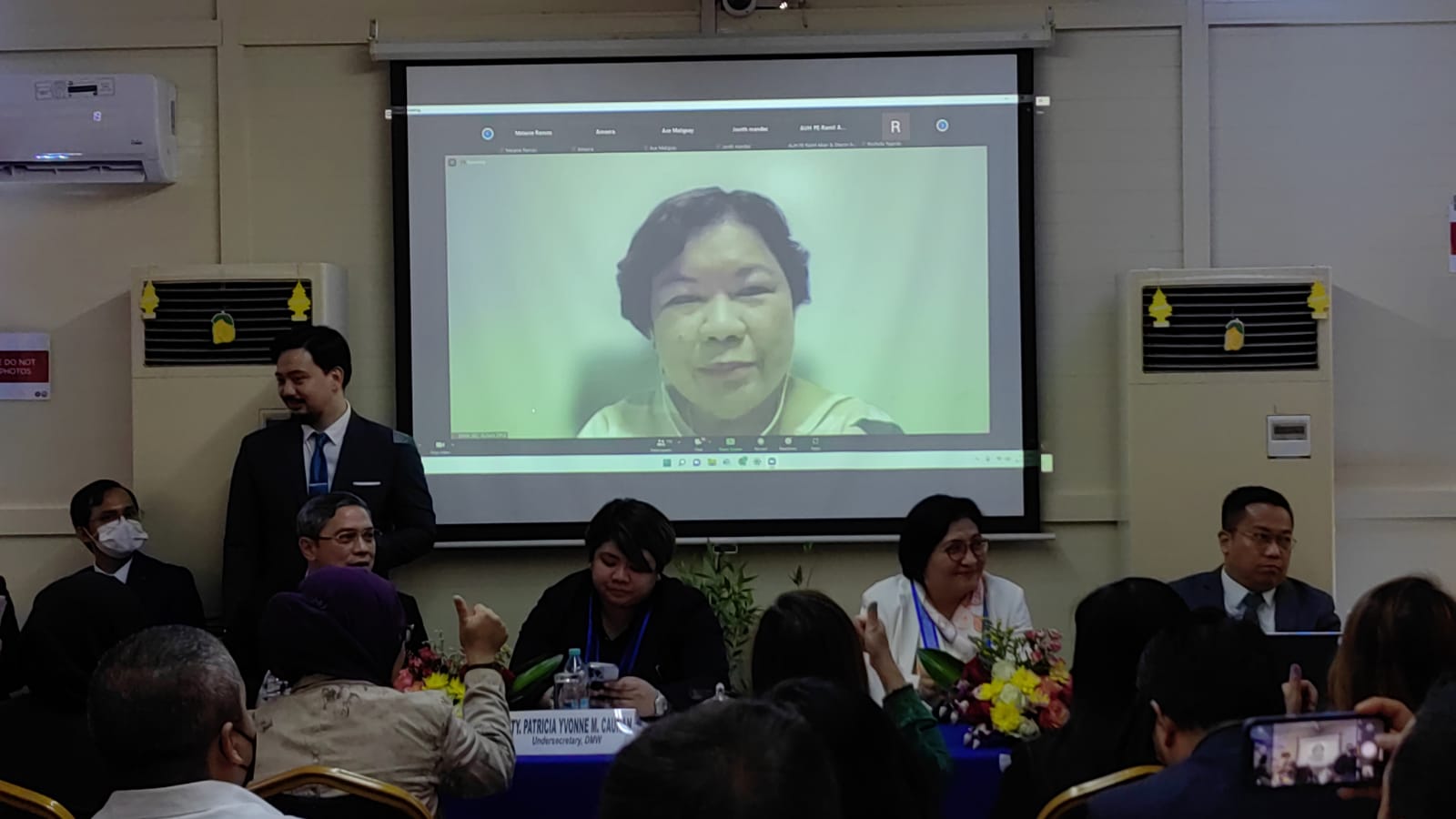
Labour code undergoes major revamp
On February 2 this year, a modernised labour reform spurred by the new world order came into force. It was given birth by Federal Decree-Law No. 33 of 2021 on the Regulation of Labour Relations (the new law), replacing Federal Law No. 8 of 1980 on November 15, 2021. It was considered as one of the most significant steps taken in the journey towards UAE Centennial 2071, following the Golden Jubilee celebrations of December 2021.
Amongst its new measures included new work models, the abolition of unlimited contracts with work contracts of a fixed term for three years, which may be renewed on the same conditions with the consent of both parties for a similar period or less. The law also set a minimum wage, which shall be determined and announced by the UAE Cabinet following a proposal by the Minister of Human Resources and Emiratisation, in collaboration with the relevant authorities. Employees now have the right to request additional types of leave under the new law, including bereavement leave of three days following the death of close family members, and parental leave of five days. Mothers will also receive longer maternity leave, with 45 days of full pay and the next 15 days with half pay.
New growth strategy with federal corporate taxation
The 9 per cent federal tax on corporate income, which was announced in January 2022 and came into effect in June, is part of the UAE’s growth strategy for its nation’s wheels to turn smoothly. To support small businesses and start-ups, the UAE implements zero per cent tax on businesses with income of up to Dhs375,000. Annual business income exceeding this amount will be taxable at the rate of 9 per cent. The tax regime to levy the country’s first-ever federal corporate tax was a significant milestone on the country’s growth path towards Centennial 2071. It was welcomed by business analysts and experts to represent the UAE’s mature view on economic progress, and continued growth as a global business hub, and marked the sign of a more structured and transparent taxation system.
The corporate tax, which was first introduced with a 5 per cent value-added tax in 2018, only applies to the adjusted accounting net profit of the business. No corporate tax will apply on personal income, from employment, real estate and other investments, or any other income earned by individuals that do not arise from a business or another form of commercial activity, licensed or otherwise, permitted to be undertaken in the UAE. The tax is not also being applied to foreign investors who do not conduct business in the UAE, as well as on domestic and cross-border payments.
New law to protect Domestic helpers
Filipino Domestic Workers are hopeful about the release of United Arab Emirates’ Domestic Helper Law, which is expected to bring about positive change in their employee-employer relations.
The Domestic Helper Law will ensure that contractual obligations are met over wages, accommodation, and medical treatment. According to MoHRE, the law aims to “provide exceptional services that achieve comfort, satisfaction, and happiness for employers and employees alike.”
The law which took effect last December 15 includes provisions such as requiring at least eight hours of sleep every night for domestic helpers. It also specifies allowing them to cook their own food and be allowed to take paid breaks, outside of the employers’ residence at least once a week. The policy also specified that they must be able to keep their passport or identification documents and the employer is not allowed to hold them. The domestic worker must also be allowed to have and use mobile phones and other communication devices and the employer is prohibited from confiscating them. Apart from that, they are required to have a bank account under their name for the payment of salary.
The new domestic helper law also entails fines of up to Dhs10 million for rule-breakers. The penalties which also includes possible imprisonment is set to protect thousands of maids, nannies, cooks, and gardeners across the Emirates.
